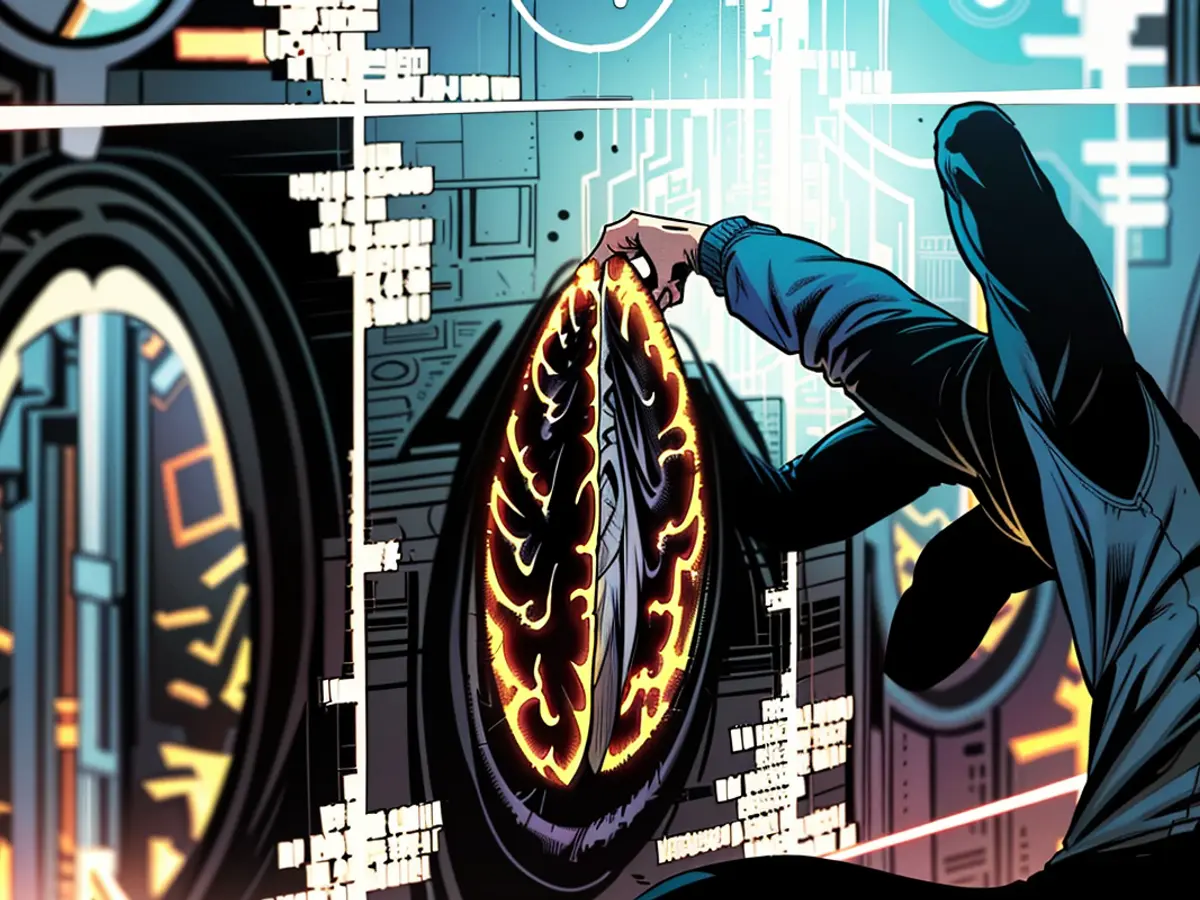MRI reveals signs of dementia years prior to diagnosis.
A dementia diagnosis comes with better chances for treatment. Recently, British scientists have created an innovative technique that could enhance early identification: a 10-minute long brain scan.
Dementia often isn't diagnosed until it's well-established, resulting in limited treatment options. While there's no cure for the illness, certain medications can help slow down its progression. The downside: Deceitful symptoms like confusion, speech issues, and memory loss frequently appear when dementia is already advanced. British researchers created this new method to improve early detection.
They developed a brain scan that takes only ten minutes. According to a study in "Nature Mental Health," this scan involving functional magnetic resonance tomography (fMRI) could spot dementia several years before symptoms start showing.
As study head Charles Marshall from Queen Mary University of London says, "We've recognized for ages that your brain's function alters several years before dementia symptoms appear. This could help us locate these changes more accurately using an MRI scan."
Shifts in specific brain regions
The study analyzed scans of 1,100 participants using fMRI to detect alterations in the "Default Mode Network" (DMN) of the brain. DMN refers to a group of brain areas that activate during inactivity and deactivate during task-solving. A scan will observe the relationships between these different areas while someone lies still without performing a particular task. This neural network is typically the first to experience shifts in dementia.
Marshall's team assigned a unique risk score to every individual, reflecting how likely they were to develop dementia. They then compared these presumptions against the real medical data for each person. The results: Their model could foretell the onset of dementia up to nine years prior to formal diagnosis with over 80% accuracy.
Investigating if these changes in the DMN were due to known risk factors, the team found an influential connection between the genetic predisposition to dementia and changes in brain area connections. This supports the belief that these alterations are specific to Alzheimer's disease, according to the study. Furthermore, social isolation significantly increased the risk of dementia by influencing connectivity in the DMN.
Encouraging results
"Identifying who's more likely to develop dementia in the future is crucial for developing therapies preventing irreversible brain cell loss associated with dementia symptoms," says Marshall. Combined with recently developed blood tests targeting brain proteins, brain scans could become a reliable way to identify impending dementia.
Dr. Sebastian Walsh, a public health expert at the University of Cambridge, isn't part of the study but assessed the results as "promising," but cautioned that more research is required. He pointed out that among 100 individuals who developed dementia, the median time between the scan and diagnosis was 3.7 years. There's a possibility that some of these participants had cognitive issues when the scan was conducted.
"To ensure this technology can predict the onset of dementia and not merely show early signs of dementia, we must show these results on larger samples with a notably longer time gap between the scan and manifestation of cognitive symptoms," says Walsh.
- The original text with Reddit formatting
- Original headline
- Paraphrase source
- Original publication
- Original posted date
- URL to preview social media post
Read also:
- This innovative 10-minute long brain scan, developed by British scientists, could potentially help in the early detection of dementia, thanks to its ability to spot indicators of the disease several years before symptoms appear, according to a study published in "Nature Mental Health".
- The study, led by Charles Marshall from Queen Mary University of London, analyzed brain scans of 1,100 participants using functional magnetic resonance tomography (fMRI) to detect alterations in the Default Mode Network (DMN) of the brain, which is often affected by dementia.
- Research reveals a strong connection between the genetic predisposition to Alzheimer's disease and changes in brain area connections, suggesting that these alterations are specific to Alzheimer's disease and Dementia, and could potentially aid in the early detection and understanding of these neurological diseases.







